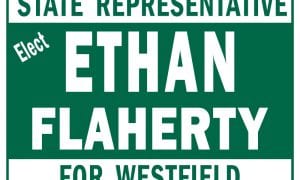WESTFIELD – The City Council has been unable to act on a $10 million bond submitted by Mayor Daniel M. Knapik for consideration by the city’s legislative branch on February 7, 2013. The cost of the projects has increased because of the time delay in action by the council.
The $10 million bond requested by Mayor Daniel M. Knapik is for energy efficiency and facility improvements for Phase 1-B of the EMS program that includes work at City Hall, the Westfield Atheneaum, Westfield High School and Westfield Vocational Technical High School. The $10 million bond is roughly divided evenly between the city building improvements and the School Department improvements.
Energy improvements were made at the two school buildings, resulting in substantial reductions in energy consumption, but further controls, sensors and ventilation systems need to be installed to maximize the benefits of the new hot-water heating that replaced the boilers originally installed in those buildings 40 years ago.
The City Hall work will encompass installation of a hot-water heating system, new lights, revamping the electrical system, air conditioning, American with Disabilities (ADA) compliance, parking lot expansion and repaving and environmental remediation for asbestos.
Knapik appeared before that Finance Committee prior to the March 21 City Council session to present his finance plan for debt, but the numbers for projected revenue and debt were contested by some council members who requested additional information from the executive branch financial team.
Members of the Legislative & Ordinance Committee and Finance Committee discussed the scope of work proposed in the next phase of the city’s program designed to reduce energy consumption with representatives of Siemens, the primary contractor, and the engineering consultant for the energy project, Tighe & Bond, at a February 12 joint-committee session and gave positive recommendations to approve the $10 million bond to the full council.
The council voted at the April 4 meeting, but failed to approve the bond, which requires the affirmative vote of a super majority, or nine, councilors. There were only nine councilors present at that session.
At-large Councilor David A. Flaherty, who has argued that the revenue and expense projects are “rosy” and are not accurate picture of the city’s financial future, voted against the bond. That no vote initiated political machinations that resulted in the bond being placed on tonight’s agenda as a minority reconsideration.
Typically council attendance at sessions held during school vacation weeks is reduced. Council President Brian Sullivan said earlier this week that the City Council may not have nine councilors in attendance to act on the bond.
“We can vote on reconsideration with a simple majority, but we’d still need nine councilors (voting in the affirmative) to pass the bond order,” Sullivan said. “I know that at least seven councilors will be present tonight.
“If there are fewer that nine members, we can still vote to reconsider (the bond order) and put it back on the table, but I’d like to vote it up or down,” Sullivan said. “It’s time to make a decision. Let’s move on and deal with the consequences. Those projects need to be done.”
Knapik said the bond vote delay is both increasing the project cost and extending the time table to complete the work. Knapik’s original plan was to move city hall employees to the upper campus of Westfield Vocational Technical High School, the former Westfield High School building at the corner of Smith Avenue and King Street Extension. Knapik said that had the bond been approved last month, that move would currently be in progress and the additional work at city hall beginning.
But that staff relocation move, which was coordinated with the School Department, will not happen in time to initiate the City Hall improvements.
Knapik’s Plan 2 is to install trailers in the parking lot of City Hall while the renovation work is performed.
“We have to do trailers in the parking lot and that’s over $200,000 that we weren’t planning on spending. Money that we could have used for building maintenance and improvements,” Knapik said. “And if we have to push off this work for a year, there may be an increase in the cost of construction. We don’t know if the cost of labor and material will increase as the economy continues to recover.”
“There are also safety and health concerns that need to be addressed, significant issues related to safety improvements,” Knapik said. “One of those issues is the air quality at Westfield High School. This phase of the energy program was designed to replace ventilation equipment, installed when the school was originally built, to let the building breath again.”





